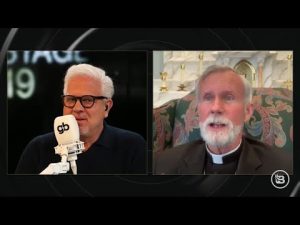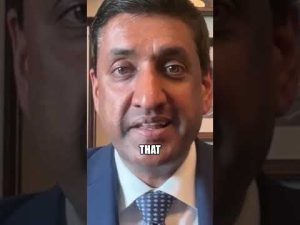### A Clash of Ideas: Sanders vs. Besson on Wealth Inequality
In the ever-bustling world of American politics, few topics ignite debate quite like wealth inequality. Recently, a memorable meeting unfolded as Senator Bernie Sanders confronted Scott Besson, a member of President-elect Donald Trump’s cabinet. This exchange took place in front of a committee filled with eager minds, ready to dive into the deep waters of economics and fairness. At the heart of their discussion was the warning of an emerging “oligarchy” in America, and whether the extreme concentration of wealth among a select few is a threat to the democracy that everyone holds dear.
Senator Sanders, being a staunch advocate for the working-class citizen, opened the dialogue with strong assertions about the increasing disparity in income and wealth in the nation. He pointed out the staggering fact that three billionaires—Elon Musk, Jeff Bezos, and Mark Zuckerberg—hold more wealth than the bottom half of Americans. He argued that this disproportionate accumulation is leading to a concentration of ownership and influence that jeopardizes the democratic rights of the very people the government is supposed to serve. This highlighted alarming social trends and raised significant questions about economic equity.
Besson was quick to respond with his perspective, emphasizing the importance of individual achievement. He noted that the billionaires in question generated their wealth through their own hard work and ingenuity, mentioning Musk’s journey as an immigrant entrepreneur. However, the real crux of the debate lay in whether such immense wealth concentrated in so few hands is a healthy sign of a functioning economy, or whether it signals the rise of an oligarchic structure that could undermine democratic ideals. This back-and-forth between Sanders and Besson revealed contrasting worldviews that illustrate the broader ideological divide in American politics today.
The discussion shed light on another popular point of contention—the federal minimum wage. Sanders lamented that the minimum wage has stagnated at a meager $7.25 an hour since 2009, while millions struggle to make ends meet. He called for an increase to a living wage to help lift Americans out of poverty, seeking Besson’s support in this initiative. Besson, however, remained reluctant, suggesting that wage levels are better addressed on a state-by-state basis rather than through federal mandate. This difference in approach speaks volumes about the ongoing debate regarding federalism versus local control—a tension that resonates in many policy discussions across the nation.
A particularly riveting moment came when Sanders shifted the topic to credit card interest rates, highlighting that many Americans pay astronomical rates upwards of 24%. Citing President Trump’s earlier promise to cap those rates at 10%, Sanders pushed for Besson’s endorsement of such legislation. Besson acknowledged the bad behavior of some credit card companies but hesitated to fully commit to the proposed cap. The reluctance mirrors a broader resistance often found in fiscal conservatism, where market forces are favored over government intervention, even in situations where consumers may be suffering.
As the committee convened, it became increasingly clear that this dialogue was about more than just numbers; it reflected fundamentally different beliefs about the role of government in economic life. Would America soar to new heights through unrestrained capitalism, or does a more regulated approach promise a fairer and more just society? This encounter serves as a microcosm of the larger battle in American politics, emblematic of a nation grappling with how to balance individualism with social responsibility. The outcome of such debates will undoubtedly shape the future, all while keeping citizens watching closely from the sidelines, popcorn in hand.
In the end, the discussion didn’t lead to any sweeping conclusions, but it certainly illuminated the stark differences between progressive and conservative ideologies in tackling economic issues. So as the political drama unfolds, those tuning in are reminded that the fight for American prosperity is as robust as ever, where every opinion counts and every voice matters. And while the heroes of this story may shift, the pursuit of a just and equitable America remains the common aim for all—whether they admit it or not!







